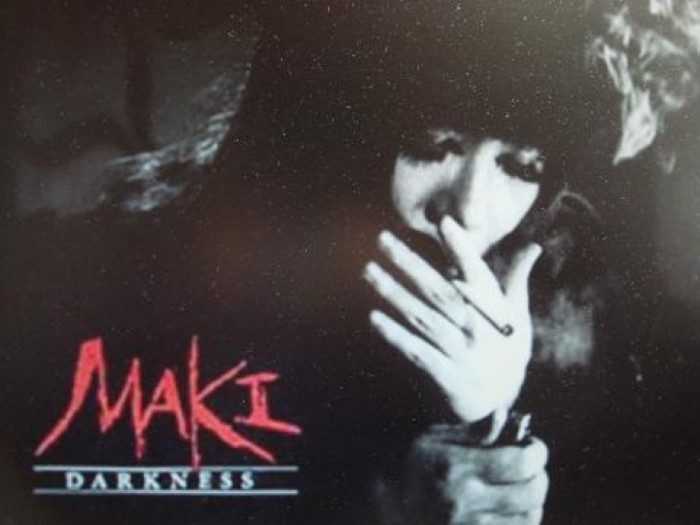http://youtu.be/Ls2tkp_osI8
Seagull – lyrics by Shuji Terayama, music by Kosaburo Yamaki. Here performed by Maki Asakawa at the Folk Jamboree in 1970. In English the lyrics are as follows –
The woman I love is a port town slut
A faithless woman who grabs men’s hearts
By leaving the door open when she puts on her clothes
Seagull, seagull, go ahead and laugh
My love for her is the real thing
In the port town at midnight
I always hang around outside her door
But I never touch her at all
Seagull, seagull, go ahead and laugh
Then suddenly one night
I saw this rich guy
Come knocking at her door
Half-drunk, hands full of roses
Seagull, seagull, go ahead and laugh
My mind went pitch-black
When I thought of them in bed
Locked together in an embrace
And her pillow scented with roses
Seagull, seagull, go ahead and laugh
I leapt without a moment’s thought
Into the room of the woman I love
With my jack-knife in my hand
I gifted her a red rose for her breast
Seagull, seagull, go ahead and laugh
The rose that I gave her
Is just right for this port town
A single faded rose of blood
A token of my desperate love
Seagull, seagull, go ahead and laugh
Seagull, seagull, farewell, goodbye
Seagull, seagull, farewell, goodbye
Maki Asakawa, like Carmen Maki, made her career breakthrough as a vehicle for Terayama’s songwriting ambitions. Struck by her Juliette Greco-like mystique, Terayama decided that he would “create a drama with a singer called Maki Asakawa as the main character.” He duly wrote 13 songs and brought in Kosaburo Yamaki, a leading jazz musician of the era, to handle the arranging.
Three late night concerts took place in December 1968 at Sasori (“Scorpion”), an underground theatre near the Isetan department store in Shinjuku. The public reaction was enthusiastic and Maki soon signed a recording contract with Toshiba (now EMI). Terayama’s dark tale of stalking and murder became a hit single. Confusingly – but typically – he wrote a completely different song called Seagull for Carmen Maki the same year.
Maki Asakawa became a distinguished song-writer herself, as well as a superb adapter and interpreter of blues and jazz standards, but the songs she is most closely associated with remain the Terayama-penned Seagull and Cat Called Unhappiness.
There’s a cat called unhappiness
That always snuggles up close to me
There’s a cat called unhappiness
So I’m never all alone
He told me when next spring comes
He’ll come and get me
But that man’s a liar
Spring isn’t going to come again
No, it won’t come
There’s cat called unhappiness
That always snuggles up close to me
So I’m never all alone
Throughout her career “the Queen of the Japanese Underground” stuck to her unique personal style – long black dress, dark glasses, cloud of cigarette smoke – and remained true to her musical roots in blues, jazz, folk and art songs. She steered clear of pop and rock music and was deeply suspicious of CDs long before the vinyl revival.
In the mid 1990s Maki forced her record company to withdraw CD versions of her albums from the market on the grounds of inadequate audio quality. She continued to perform regularly in Shinjuku and elsewhere, but refused to make any more recordings. “I’m not going to adjust my breathing to the trends of the times,” she stated.
In 2012 Maki Asakawa died of a heart attack while preparing for a gig in Nagoya. She was sixty seven years old. Shine on.

